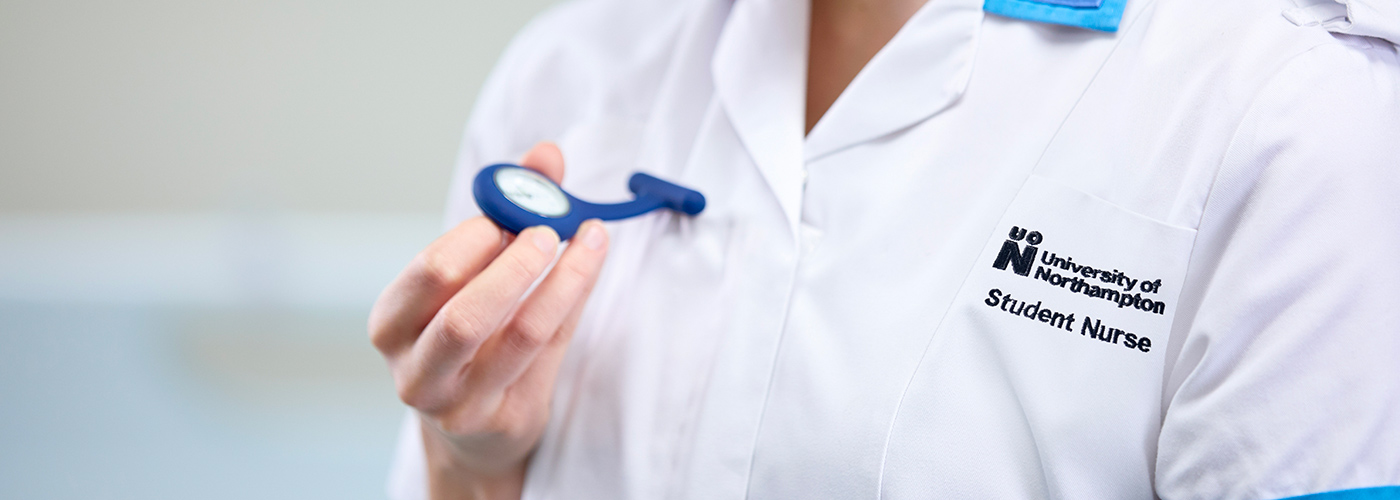Happy birthday to Nursing Associates!
Date 2.02.2024
2.02.2024
The local NHS is healthier thanks to the hard work of graduates from one University of Northampton (UON) Nursing course that, nationally, celebrates its fifth birthday this week.
Nursing Associate (NA) is a stand-alone role in the NHS and they work across all four fields of nursing (adult, children’s, mental health, and learning disability) with a focus on delivering ‘hands on care’.
Their skills and responsibilities vary depending on the care or health setting they work in but can include performing clinical duties such as taking blood pressure and supporting patients and families when giving life-changing news.
The role can also act as a stepping stone to being a degree-level nurse.
Originally 1,000 Nursing Associates joined the register in 2019, but since then there are now over 10,000 NAs on the register; the NHS has projected there could be 64,000 by 2036.
Since 2017, the University of Northampton has offered Nursing Associate as a two-year, full time foundation degree, originally as an apprenticeship ‘earn while you learn’ course but since 2019 a direct entry route via UCAS has also been available.
The total number of UON Nursing Associate graduates who provide vital support for the health service stands at 103. A further 19 will graduate in September.
Graduate Sharla Cook says of studying at UON: “I decided to study at the University of Northampton as I felt it would be convenient for my home life to fit in with my university life. I was impressed with the new campus – it has great facilities, especially for students studying health courses.
“The whole UON experience boosted my confidence and helped me to become the person I am today; it has been the best decision I’ve made so far.”
Hannah Cannon, Senior Lecturer in Practice Development, is UON’s Nursing Associate Programme Lead. She adds: “For half a decade, University of Northampton Nursing Associates like Sharla have provided helping hands for the health service.
“Last year, we held a mini conference for students past and present. One of the discussions focused on ‘What makes a Nursing Associate’ and it was heartening to hear students talking about emotional intelligence. This is so important because they, like anyone else within nursing, need to have that empathic connection with the people they will care for and be able to deal with being that conduit between patients and other healthcare professionals.
“There are more than 10,000 Nursing Associates now registered in England and the team and I send them all best wishes on the fifth birthday of the programme.”
Find out more about becoming a Nursing Associate on our website.